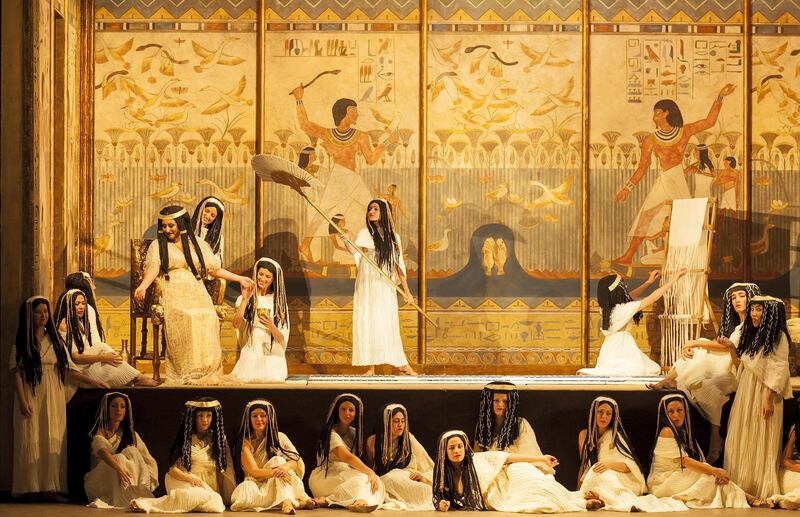Royal Opera House Muscat's new season opens tomorrow with a new production of Verdi's classic Aida. Here, Gianandrea Noseda, conductor of the orchestra and chorus of the Teatro Regio, Torino, who are staging the production, tells us why he thinks Aida remains important today.
I'm especially fond of this production, staged for the first time at Teatro Regio Torino. William Friedkin, the director, respects the ideas of the composer, and is never trivial or unnecessarily provocative. We are very proud to bring to Royal Opera House of Muscat one of the most representative productions of Teatro Regio Torino with our own Orchestra and Chorus of Teatro Regio Torino, and a wonderful cast of renowned international singers.
Three reasons why I believe Aida is still one of the most powerful and relevant operas to this day:
It shows a composer at the height of his powers
Aida holds a central place in the operatic canon, steeped in Verdi's genius that, by 1870, had reached a musical, artistic and dramatic high point. Aida is, ultimately, the result of the natural evolution of a composer who never ceased to grow.
It doesn’t try too hard
Aida is the opera of a mature man, who still has an immense creative power but no longer the need to impress. Having reached this point, Verdi can say things with truth and depth, characteristics of those who no longer have the need neither to prove, nor to lose. He was the greatest composer of his time, something easily seen from the freedom in which he wrote; actually Aida is a summary of Verdi's compositional style, even more is a surprising opera in which Verdi wanted to overcome the limits of tonality.
It is a very human story at heart
The story hinges on universal feelings of love, of isolation, that we can all relate to. Despite the potential for political posturing, Aida is rather less politically tinged than many of Verdi's operas. In the plot there is, of course, a war between Egypt and Ethiopia, but the characters of its central love story represent both sides of that divide, and both are likable people of admirable ethics. The main plot is based on the love triangle story between Radames, Aida and Amneris and the war is essentially a subtext, we never see a fight on scene, just a consequence: the "Triumphal march" of second Act.
We have to consider Aida as an intimate opera and that famous march, serves to shed light, by contrast, on deep, hidden and spiritual pages. Amneris, daughter of the King is lonely; Aida, a slave in a foreign country, is lonely; even Radamès, the captain, is lonely and speaks of a military secret. All the protagonists live their loneliness. The orchestra, therefore, must show its character: a character like the others, it has to communicate and participate to the action.
______________
Read more:
[ Kiwi opera diva Te Kanawa announces retirement ]
[ Dubai Opera launches behind-the-scenes tours ]
[ Why can't anyone solve the mystery of Don Giovanni? ]
______________





